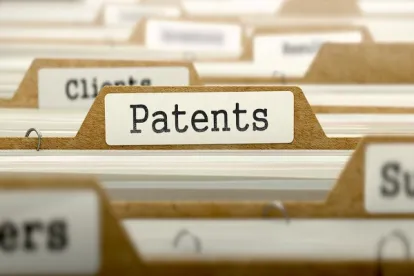On May 12, 2016, the Federal Circuit issued a decision on 101 patent eligibility that overturned a summary judgment finding of § 101 invalidity for software used for databases. Enfish, LLC v. Microsoft Corp., No. 2015-1244, 2016 WL 2756266 (Fed. Cir. May 12, 2016). The Enfish v. Microsoft decision interpreted the “abstract idea” first prong of patent eligibility under the Mayo/Alice line of cases. It reversed the district court’s grant of summary judgement based on § 101, finding that the data storage and retrieval system for a computer memory recited by five claims on appeal of U.S. Pat. No. 6,151,604 were patent-eligible.
Two weeks later, in a CBM review, the Patent Trial and Appeal Board (PTAB) denied institution on the reviewed claims of U.S. Pat. No. 6,006,227 on § 101, referencing Enfish v. Microsoft. Apple v. Mirror World Technologies, CBM2016-00019, Paper 12, May 26, 2016. Mirror World’s ‘227 patent covers a “Document Stream Operating System,” as represented by claim 13:
13. A method which organizes each data unit received by or generated by a computer system, comprising the steps of:
generating a main stream of data units and at least one substream, the main stream for receiving each data unit received by or generated by the computer system, and each substream for containing data units only from the main stream;
receiving data units from other computer systems;
generating data units in the computer system;
selecting a timestamp to identify each data unit;
associating each data unit with at least one chronological indicator having the respective timestamp;
including each data unit according to the timestamp in the respective chronological indicator in at least the main stream; and
maintaining at least the main stream and the substreams as persistent streams.
The Board determined that the ‘227 was a covered business method patent eligible for review under AIA § 18, but that the claims do not recite an abstract idea. The Board based its decision on a number of reasons, including:
-
Patent Owner demonstrated that the claims recite a solution to a problem that is “necessarily rooted in computer technology,”
-
Patent Owner identified a number of problems solved by the claimed invention that did not exist in the pre-computer world, and
-
The Board was persuaded by Patent Owner’s assertion that the claims cannot be performed entirely by the human mind or with pen or paper, and that certain steps of the claims specifically call for operations that must be performed by a computer.
The Board then relied on this excerpt from Enfish:
We do not read Alice to broadly hold that all improvements in computer-related technology are inherently abstract and, therefore, must be considered at step two. Indeed, some improvements in computer-related technology when appropriately claimed are undoubtedly not abstract, such as a chip architecture, an LED display, and the like. Nor do we think that claims directed to software, as opposed to hardware, are inherently abstract and therefore only properly analyzed at the second step of the Alice analysis. Software can make non-abstract improvements to computer technology just as hardware improvements can, and sometimes the improvements can be accomplished through either route. We thus see no reason to conclude that all claims directed to improvements in computer-related technology, including those directed to software, are abstract and necessarily analyzed at the second step of Alice, nor do we believe that Alice so directs. Therefore, we find it relevant to ask whether the claims are directed to an improvement to computer functionality versus being directed to an abstract idea, even at the first step of the Alice analysis.
Decision at p. 16 citing Enfish v. Microsoft at *4, (emphasis added).
The Board concluded that the first prong of the Mayo/Alice test was not met. The Board also went on to find that the second prong of the Mayo/Alice test was not met, noting DDR Holdings. Consequently, the Board issued its order denying CBMR.
As noted in earlier posts, the Board has been known to rapidly adopt decisions from the courts, and this case demonstrates the velocity at which decisions are integrated into practice before the Board.



 />i
/>i

